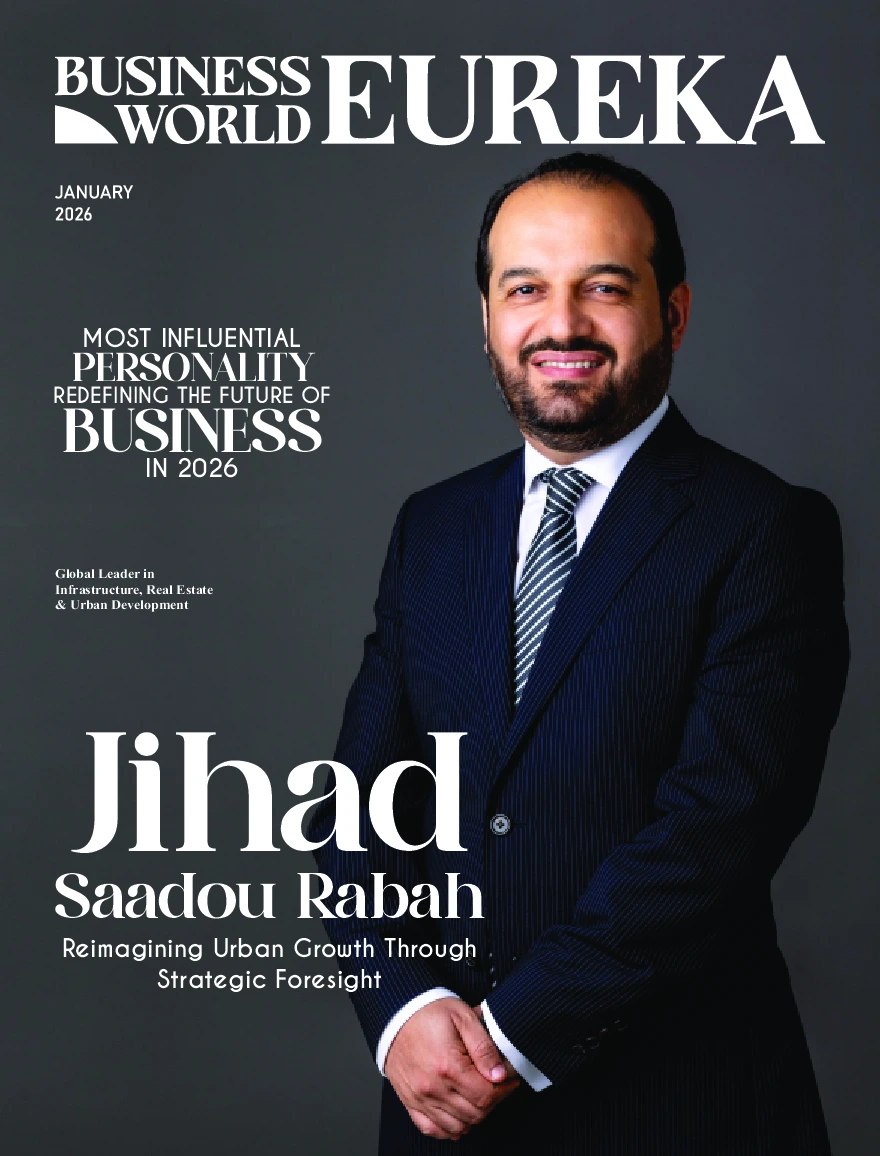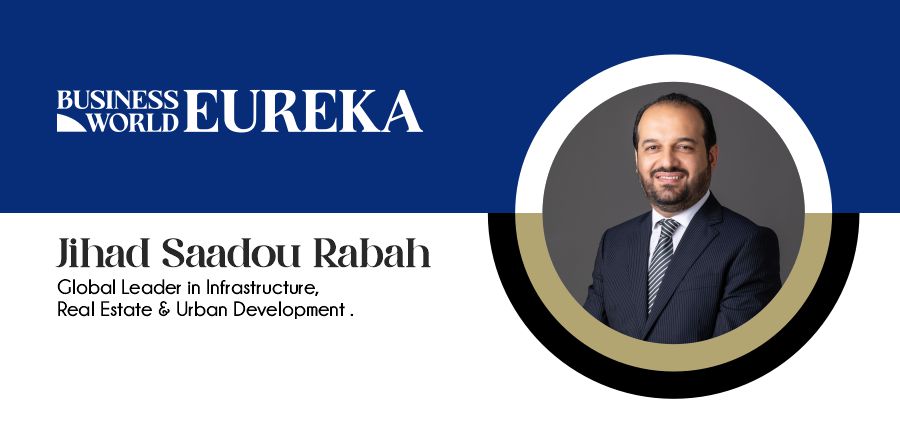Hamid Kohan: Rebuilding the Foundation of the Legal Industry

The legal profession has long been regarded as a pillar of justice, integrity, and societal order. However, beneath its noble purpose lies a system burdened by inefficiencies that hinder its ability to serve effectively. Outdated processes, excessive paperwork, and sluggish workflows have made legal work unnecessarily cumbersome, pulling attorneys away from what truly matters—advocating for their clients. Many law firms still rely on decades-old methods that stifle growth and innovation, preventing them from scaling or offering the level of service modern clients expect. The very principles that define the legal profession—efficiency, precision, and fairness—are at risk when firms struggle under the weight of outdated practices.
This is where Hamid Kohan steps in—not as a bystander pointing out flaws, but as a leader of visionaries determined to rebuild the foundation. A pioneer in technology and business, he brings Silicon Valley ingenuity to an industry that desperately needs transformation.
From Tech Pioneer to Legal Industry Disruptor
Hamid is a seasoned entrepreneur with extensive experience in both the tech and legal industries. His journey began at an early age, earning his engineering degree from Chico State University at just 17. Immediately after, he was recruited to Silicon Valley, where he launched his career in technology. By 21, he had completed an MBA in business marketing, further strengthening his expertise in business and technology management.
In the early stages of his career, Hamid played a pivotal role in groundbreaking technological advancements. As Senior Manager of Product Development at Grid Systems, he was part of the team that created the world’s first laptop computer. In 1984, he joined SUN Microsystems as Senior Engineering Manager, working alongside future industry leaders like Eric Schmidt (former Google CEO) and Carol Bartz (former Yahoo CEO). During his tenure, he contributed to the company’s expansion from 200 employees to over 13,000 within eight years. He later held senior roles at Hitachi Computers and Tandem Computer (now HP Computers), overseeing business and technology development.
In 1999, Hamid transitioned to Los Angeles, where he became Division President of Emblazed Technology (Webradio), a publicly traded company. Under his leadership, the company experienced a remarkable 300% growth in just a year, reaching a $1 billion valuation. His ability to drive rapid expansion led him to co-found CAPLUCK Inc. in 2004, where he launched Cap60, now a leading data management provider serving clients across 40 states and recognized as the largest service provider for nonprofit organizations in the U.S.
Blueprint for the Law Firm of the Future
Leveraging his vast experience in technology and business, Hamid entered the legal industry in 2016 by founding Practice AI™ Inc. The company provides innovative practice management solutions tailored to law firms’ specific needs. Initially partnering with a few local firms, Practice AI™ quickly demonstrated impressive results, helping many law firms achieve over 100% growth in a short period. Today, the company supports firms across the U.S. in various practice areas, including personal injury, employment law, immigration, and business law.
Under Hamid’s leadership, Practice AI™ has gained a reputation for transforming small, single-office law firms into multi-state, multi-practice enterprises. His focus on efficiency and growth has positioned Practice AI™ as a leading force in legal technology. In addition to running the company, Hamid is a sought-after speaker at major legal conferences, where he shares expertise on scaling law firms and streamlining business operations.
Beyond his entrepreneurial ventures, Hamid has authored three books, including the widely read How to Scale Your Stupid Law Firm, which provides actionable strategies for rapid and sustainable law firm growth. His straightforward, results-driven approach continues to resonate with attorneys and legal professionals, cementing his status as a thought leader in legal practice management.
Mission to Modernize Law Firms
After years in Silicon Valley, Hamid recognized a significant challenge within the legal industry—many law firms were operating with outdated systems and inefficient workflows. He saw a major gap in tech adoption and realized that AI and automation could revolutionize the sector.
This insight led him to establish Practice AI™, with the mission of bringing Silicon Valley-level innovation to law firms. His goal was to help legal practices scale, automate processes, and achieve growth more efficiently in an increasingly digital world.
Hamid identified some of the biggest inefficiencies in the legal industry, including manual processes, a lack of automation, and outdated client management systems. These challenges often hinder law firms from operating efficiently and scaling effectively.
Through Practice AI™, he addresses these issues by introducing AI-powered automation to reduce paperwork and accelerate case handling, offering virtual legal staffing solutions to help firms expand without significant overhead, and implementing tech-driven growth strategies to modernize law firms for the digital age. His approach enables law firms to operate like businesses—efficient, scalable, and prepared for the future.
Having worked on groundbreaking technologies, Hamid sees AI as a transformative force in the legal industry, much like computers revolutionized business operations. He believes AI will reshape legal work in several key ways:
- AI-powered case predictions – Lawyers will be able to anticipate case outcomes with data-driven insights.
- Automated legal research – AI will drastically reduce research time, cutting it from hours to minutes.
- Smarter document generation – AI will draft contracts, pleadings, and demand letters with precision and efficiency.
According to Hamid, law firms that embrace AI now will lead the industry, while those that hesitate will struggle to keep pace with the rapidly evolving legal landscape.
Turning Case Chaos into Legal Clarity
Hamid has led Practice AI™ in integrating technology with law in groundbreaking ways, significantly transforming law firm operations. One notable example involved a law firm struggling with overwhelming case backlogs. By implementing AI Demands™ and AI Case Summary™, Practice AI™ reduced the firm’s processing time by 80%.
- Faster demand letters led to increased settlements.
- Automated document summaries minimized manual review time.
- Virtual legal staff enabled in-house teams to focus on high-value tasks.
The result was a more efficient firm handling more cases, generating higher revenue, and delivering improved client service.
Future-Proofing Law
Hamid emphasizes that law firms must adapt to digital transformation or risk falling behind. As the legal industry evolves, firms that resist technology will struggle to compete with more efficient, AI-powered counterparts.
His advice to hesitant firms includes:
- Start small – Automate a single process to experience the immediate benefits.
- Focus on ROI – View AI as an investment that saves both time and money.
- Embrace change – The firms that innovate today will become the industry leaders of tomorrow.
According to Hamid, the legal landscape is shifting rapidly, and those who adopt technology now will gain a competitive edge in the future.
Lessons from Tech Titans
Hamid has had the opportunity to work alongside influential leaders such as Eric Schmidt and Carol Bartz, gaining valuable leadership insights from both.
- From Eric Schmidt (Google): Scale quickly, but never compromise on quality.
- From Carol Bartz (Autodesk, Yahoo): Be decisive—delaying action can be more detrimental than making a mistake.
A key takeaway from both leaders was that while vision is essential, execution is what truly drives success.
Automation, Partnerships, and Data-Driven Success
When it comes to scaling Practice AI™, Hamid has implemented a strategy built on three core pillars:
- Automation First – Automating processes allows law firms to grow efficiently without increasing operational costs.
- Strategic Partnerships – Collaborating with top legal staffing agencies and AI providers enhances service offerings.
- Data-Driven Growth – Continuously analyzing market trends enables quick adjustments and sustained expansion.
This approach has enabled Practice AI™ to scale rapidly while staying ahead of industry demands and technological advancements.
The Grit and Strategy Behind Lasting Success
Hamid believes that success in the tech and legal industries requires several key qualities:
- Adaptability – Markets evolve rapidly, and staying ahead is crucial.
- Problem-solving mindset – Identifying inefficiencies and implementing solutions drives progress.
- Execution focus – Ideas hold little value without decisive action.
Above all, he emphasizes persistence, noting that challenges are inevitable, but those who push through them emerge as winners.
Envisioning a Future of AI-Driven Legal Excellence
Looking ahead, Hamid sees AI-driven client interaction and case automation as the next major trend in legal technology. He predicts significant advancements, including:
- AI chatbots handling basic client inquiries and intake.
- Predictive analytics enabling attorneys to forecast case outcomes with greater accuracy.
- End-to-end automation streamlining case management and administrative work.
Practice AI™ is already at the forefront of these innovations, actively developing solutions to ensure law firms remain competitive and future-ready.
Explore more insightful articles, interviews, industry news, and business magazines on our website. Click here to stay informed and inspired!
-
06 Feb 2026 Digital VersionMost Influential Personalities Redefining the Future of Business in 2026
-
05 Feb 2026 UncategorizedJihad Saadou Rabah: Reimagining Urban Growth Through Strategic Foresight
-
 05 Feb 2026 Uncategorized10 Ways Leaders Can Build Psychological Safety That Transforms Teams
05 Feb 2026 Uncategorized10 Ways Leaders Can Build Psychological Safety That Transforms Teams -
 05 Feb 2026 Uncategorized5 Leadership Truths You Will Not Learn From Books
05 Feb 2026 Uncategorized5 Leadership Truths You Will Not Learn From Books -
 05 Feb 2026 magazinesMost Influential Personality Redefining the Future of Business in 2026
05 Feb 2026 magazinesMost Influential Personality Redefining the Future of Business in 2026 -
 28 Jan 2026 ArticlePappedeckel Material Guide: Advanced Packaging Innovation and Applications
28 Jan 2026 ArticlePappedeckel Material Guide: Advanced Packaging Innovation and Applications -
22 Jan 2026 UncategorizedThe Five Data Problems That Could Break Healthcare AI
-
12 Jan 2026 ArticleTom Welling Net Worth 2026 | Career & Earnings Breakdown




